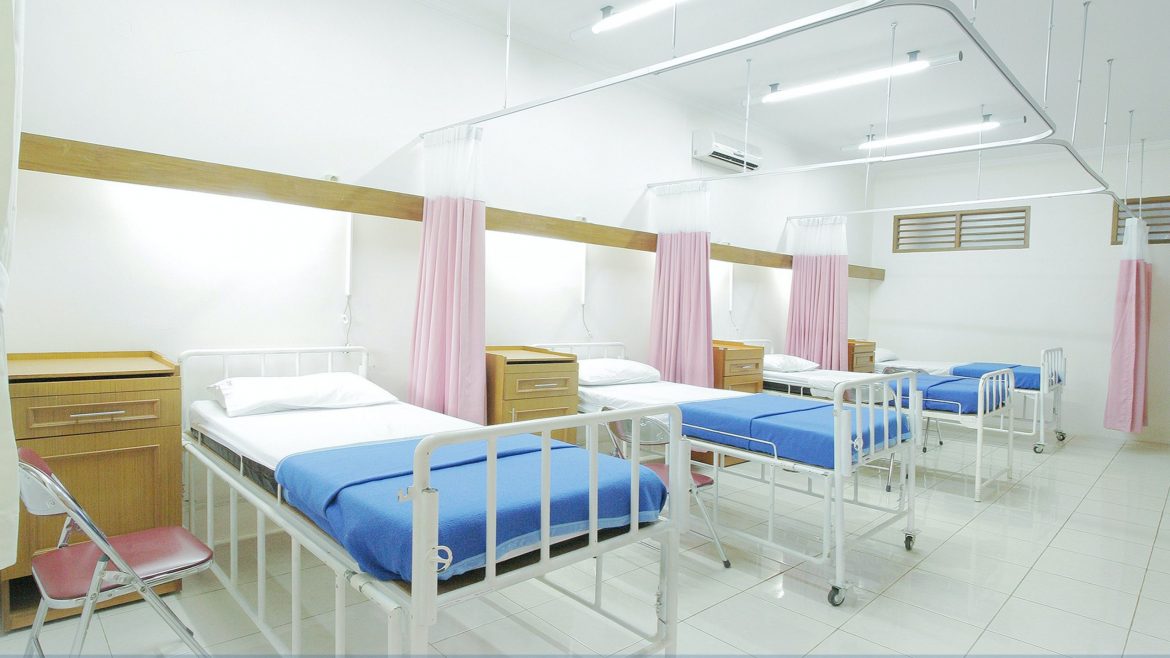Hospital admissions connected to lung conditions in England and Wales more than doubled between 1999 and 2019, with this rise reflected in figures obtained from Kingston Hospital.
Research published in BMC Pulmonary Medicine in November 2021 has revealed that respiratory disease-related hospital admissions (RRHAs) increased twofold (by 104.7 per cent) in the two decades, rising from 1535.05 per 100,000 persons to 3142.83 annually.
One of the paper’s authors, Dr Abdallah Naser from Isra University in Jordan, told the Kingston Courier the researchers were “surprised” by the results. “We expected that we would see a decrease in hospitalisation patterns due to the continuous advancement in healthcare provision in the UK,” he said.
“However, this was not the case. Advancements in healthcare provision were hampered by a variety of factors such as aging and adaptation to unhealthy lifestyles (cigarette smoking, electronic cigarettes, and second-hand tobacco smoke), as well as air pollution, which is a significant environmental health hazard in Europe in general.”
The findings have been reflected in records of Kingston Hospital’s RRHAs, obtained by the Kingston Courier under the Freedom of Information Act 2000, which almost doubled in just five years between 2014 and 2019.
The hospital shared that the most common lung conditions they treat are: chronic obstructive pulmonary disease (COPD), asthma, pulmonary fibrosis, sarcoid, pneumonia, lung cancer, mesothelioma, pleural effusion, pneumothorax, pulmonary embolism and type two respiratory failure.
Rising numbers
The BMC Pulmonary Medicine study found that 24,202,487 RRHAs were reported in total across England and Wales between 1999 and 2019, accounting for 6.5 per cent of all hospital admissions during the period.
Over the two decades analysed, the most prevalent RRHA culprits were influenza and pneumonia, chronic lower respiratory diseases, acute lower respiratory infections, acute upper respiratory infections and other diseases of the upper respiratory tract.
The rates of hospitalisation acceleration for some diseases were particularly alarming, including diseases of the pleura, acute upper respiratory infections, acute lower respiratory infections, chronic lower respiratory diseases and intraoperative and postprocedural complications and disorders of the respiratory system.
Analysis found that over the duration of the study, hospital admission rates increased by 119.8 per cent in females and 92.9 per cent in males.
The researchers identified inhalation of tobacco smoke, indoor air pollution from burning fuels, low socioeconomic status and air pollution from traffic and industrial sources as the primary causes.
The study’s analysis period ended before the outbreak of the Covid-19 pandemic, so it is unclear what effect it will have on future hospitalisations. The researcher points out that admissions for many conditions fell during the height of the pandemic, but it is not known whether this was driven by preventative measures such as masks reducing contraction of lung diseases, or whether those with conditions were just more reluctant to go to hospital.
Nevertheless, the study’s conclusion is clear: “Respiratory diseases can be preventable, and the associated prevention costs are only a fraction of treatment costs. Future research with innovative approaches is needed to lessen the clinical burden of these hospital admissions, enabling disease prevention, timely diagnosis and new effective personalised interventions.”
Preventing fatalities
Further cause for concern is Asthma + Lung UK’s finding that the UK has the second highest death rate for lung conditions in Europe, topped only by Turkey.
Half a million people in the UK died of conditions including asthma attacks, COPD exacerbations and pneumonia between 2012 and 2018. The charity calls this “shameful”.
More than 12 million British people will contract a lung condition in their lifetime, and lung disease is the third largest killer in the UK. Nevertheless, only 2% of UK health research spending is used to investigate the conditions.
The Department of Health has said that the National Institute for Health Research has invested over £130 million into such research since 2017, but Asthma + Lung UK is unsatisfied.
In a statement, the charity said: “The government must triple investment in lung research and innovation over the next five years to at least £150 million each year and commit to much bolder clean air legal targets to protect all our lung health.”
Indeed, in 2019, Public Health England identified air pollution as a threat to the UK population, estimating that long-term exposure causes between 29,000 and 39,000 premature deaths a year. This has led to measures such as the introduction of the Ultra Low Emission Zone (ULEZ) across much of London.
However, Dr Naser feels more policy is required to tackle the problem. “We highly encourage funding bodies in the UK to give more attention to research in the area of respiratory diseases, which aids in the early diagnosis and the prevention of disease progression,” he said.
In his view, prevention is better than cure. “We promote applying proactive measures to prevent the development of different types of respiratory diseases, which are more cost-effective, including increasing awareness and knowledge about the diseases and their risk factors, and improving health education in schools and universities.”
He specifically advocates for utilisation of social media to promote “healthier lifestyles” to young people, believing it would be effective due to the proliferation of its use.
“Other measures that could be helpful include increasing taxes on harmful products such as tobacco, which should be effective in other countries,” he added.
The Department of Health has said that lung disease is a “clinical priority” in the UK. “Working with partners we’re investing millions to advance research, increase early diagnoses and improve access to treatments,” a spokesperson said. “Alongside this, we’re funding research into respiratory infections and the health impact of air pollution and other environmental exposures.”
Dr Naser is adamant that more needs to be done. “It is critical to promote early detection of chronic respiratory disorders in order to reduce hospitalisation,” he said. “To increase our understanding of the risk factors and comorbidities linked with admissions due to respiratory illnesses, we need more proactive research.”





